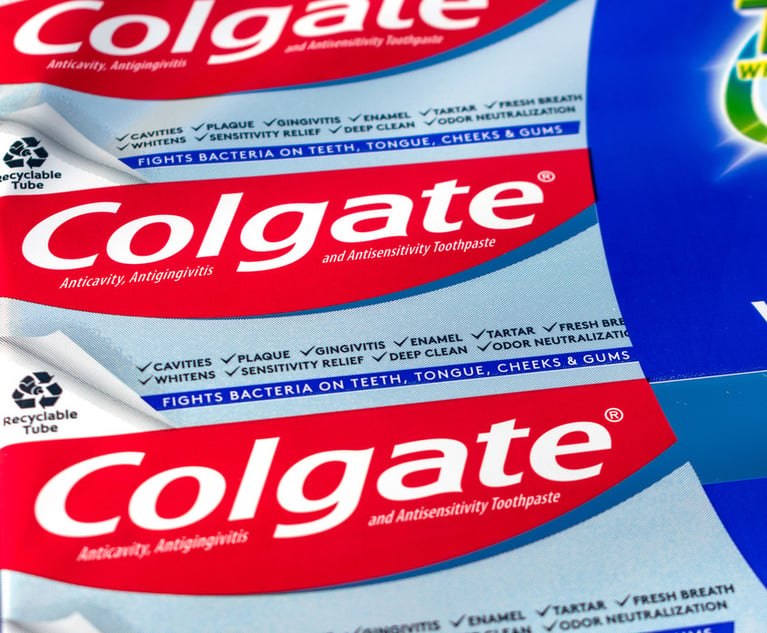Did Voge deserve to be ousted from Latham? Partners split on firm's action over misconduct
Survey results reveal many partners believe 'pendulum has swung too far' in response to allegations of inappropriate behaviour amid scandal over Latham chief's exit
April 10, 2018 at 10:20 AM
5 minute read
The original version of this story was published on Law.com
The majority of partners believe it was right for former Latham & Watkins chair and managing partner Bill Voge to step down from his leadership role in the wake of recent revelations about his personal conduct, but more than 40% of respondents to a Legal Week survey said he should not have resigned from the firm entirely.
Three weeks after Voge voluntarily disclosed "communications of a sexual nature" to the firm's executive committee, which were deemed by Latham to be "not befitting the leader of a firm", the results of the latest Big Question survey suggest that, in the eyes of many partners, he did not entirely deserve his fate.
Voge quit after Latham was confronted with details of his questionable relationship with a woman unconnected to the firm. He reportedly first contacted her with an offer to help her engage in 'Christian reconciliation' due to his membership of US faith-based group the New Canaan Society.
Although they never met, their communications became sexual, and when their relationship soured, the women contacted his lawyer, his family, and lawyers at both Latham and Kirkland & Ellis, according to a Law360 report.
While 52% of respondents to Legal Week's survey – which garnered responses from about 100 partners – said that Voge was correct to step down from his chair and managing partner roles, 41% felt he should not have been made to resign from the firm, with one saying that "the consequences were out of all proportion to what he did".
Another respondent, who claims to have worked for Voge, commented: "I looked up to him as a role model. The guy doesn't even curse. I find it very hard to believe that the situation was so serious that he had to be unceremoniously booted from the firm that he helped to build. The pendulum has swung too far."
However, 25% said it was right for Vogue to resign completely. Moreover, 43% said it was correct for Latham to take the approach it did, even though the allegations were unconnected to the firm's business, although nearly 30% disagreed.
One respondent argued in favour of Latham's move: "This was not just a private affair. Viewed as a whole, his reported actions suggest that he is an untrustworthy person ruled by impulse and not by logic." Another commented: "I think the particular action was necessary because of Voge's leadership position."
Meanwhile, Voge's membership of the New Canaan Society, where he also sat on the national board of directors, raises questions as to whether partners should be required to disclose their involvement in such religious groups.
With regards to whether this is acceptable or not, nearly 40% said yes, while just under a third disagreed. Fifty percent of respondents said partners should not have to declare involvement in societies such as this, while one quarter said they should.
What is and is not appropriate is now being defined by a warped sense of morality
When considering whether law firms should intervene when it comes to inappropriate or illegal behaviour by a partner or staff member, there was broad agreement that firms should get involved in cases of sexual assault or sexual harassment, but only 2% of respondents said firms should intervene in the case of inappropriate sexual relations in someone's personal life – such as an affair – which do not involve anyone in the firm.
Partners were also canvassed on their views on the use of non-disclosure agreements (NDAs), which have recently come under fire in the context of the #MeToo movement.
It emerged last year that Allen & Overy helped to draw up an NDA for the settlement between disgraced movie producer Harvey Weinstein and his former assistant Zelda Perkins, an agreement described by employment lawyers as being "perilously close to unenforceable" after it was published online by the parliamentary committee investigating possible abuse of such agreements
Fifty-one percent of respondents to the survey said the use of an NDA in the Voge affair would not have been appropriate, with just 17% taking the opposite view.
Going forward, the majority of respondents (62%) said the scandal will only affect Latham's reputation in the short term and will cause no long-term damage, while 20% said it will do no damage at all.
The vast majority of survey respondents (83%) said Latham's actions reflected a change in attitude to such matters, and 88% said high-profile examples like this will encourage more firms to be more open and take action against even those at the top of firms.
However, despite these seemingly progressive views, the survey reveals that many partners are unconvinced by the merits of the #MeToo movement, which has prompted many victims to come forward with allegations of sexual harassment and assault, including a number in the legal sector.
Firms including Herbert Smith Freehills, Baker McKenzie and Dentons have recently taken action against partners after claims of inappropriate behaviour, but 57% of respondents to the survey said they think things are going "too far".
One respondent described the episode as "ridiculous", adding: "What is and is not appropriate is now being defined by a warped sense of morality, riled up by the media looking to sensationalise everything."
Another concludes: "The general trend towards more diversity in attitudes has to be good, but care needs to be taken to ensure the pendulum does not swing too far, too fast, as it could push attitudes backwards."
NOT FOR REPRINT
© 2025 ALM Global, LLC, All Rights Reserved. Request academic re-use from www.copyright.com. All other uses, submit a request to [email protected]. For more information visit Asset & Logo Licensing.
You Might Like
View All
How This Dark Horse Firm Became a Major Player in China

Colgate Faces Class Actions Over ‘Deceptive Marketing’ of Children’s Toothpaste

Internal Whistleblowing Surged Globally in 2024, So Why Were US Numbers Flat?
6 minute read
Trending Stories
- 1New York-Based Skadden Team Joins White & Case Group in Mexico City for Citigroup Demerger
- 2No Two Wildfires Alike: Lawyers Take Different Legal Strategies in California
- 3Poop-Themed Dog Toy OK as Parody, but Still Tarnished Jack Daniel’s Brand, Court Says
- 4Meet the New President of NY's Association of Trial Court Jurists
- 5Lawyers' Phones Are Ringing: What Should Employers Do If ICE Raids Their Business?
Who Got The Work
J. Brugh Lower of Gibbons has entered an appearance for industrial equipment supplier Devco Corporation in a pending trademark infringement lawsuit. The suit, accusing the defendant of selling knock-off Graco products, was filed Dec. 18 in New Jersey District Court by Rivkin Radler on behalf of Graco Inc. and Graco Minnesota. The case, assigned to U.S. District Judge Zahid N. Quraishi, is 3:24-cv-11294, Graco Inc. et al v. Devco Corporation.
Who Got The Work
Rebecca Maller-Stein and Kent A. Yalowitz of Arnold & Porter Kaye Scholer have entered their appearances for Hanaco Venture Capital and its executives, Lior Prosor and David Frankel, in a pending securities lawsuit. The action, filed on Dec. 24 in New York Southern District Court by Zell, Aron & Co. on behalf of Goldeneye Advisors, accuses the defendants of negligently and fraudulently managing the plaintiff's $1 million investment. The case, assigned to U.S. District Judge Vernon S. Broderick, is 1:24-cv-09918, Goldeneye Advisors, LLC v. Hanaco Venture Capital, Ltd. et al.
Who Got The Work
Attorneys from A&O Shearman has stepped in as defense counsel for Toronto-Dominion Bank and other defendants in a pending securities class action. The suit, filed Dec. 11 in New York Southern District Court by Bleichmar Fonti & Auld, accuses the defendants of concealing the bank's 'pervasive' deficiencies in regards to its compliance with the Bank Secrecy Act and the quality of its anti-money laundering controls. The case, assigned to U.S. District Judge Arun Subramanian, is 1:24-cv-09445, Gonzalez v. The Toronto-Dominion Bank et al.
Who Got The Work
Crown Castle International, a Pennsylvania company providing shared communications infrastructure, has turned to Luke D. Wolf of Gordon Rees Scully Mansukhani to fend off a pending breach-of-contract lawsuit. The court action, filed Nov. 25 in Michigan Eastern District Court by Hooper Hathaway PC on behalf of The Town Residences LLC, accuses Crown Castle of failing to transfer approximately $30,000 in utility payments from T-Mobile in breach of a roof-top lease and assignment agreement. The case, assigned to U.S. District Judge Susan K. Declercq, is 2:24-cv-13131, The Town Residences LLC v. T-Mobile US, Inc. et al.
Who Got The Work
Wilfred P. Coronato and Daniel M. Schwartz of McCarter & English have stepped in as defense counsel to Electrolux Home Products Inc. in a pending product liability lawsuit. The court action, filed Nov. 26 in New York Eastern District Court by Poulos Lopiccolo PC and Nagel Rice LLP on behalf of David Stern, alleges that the defendant's refrigerators’ drawers and shelving repeatedly break and fall apart within months after purchase. The case, assigned to U.S. District Judge Joan M. Azrack, is 2:24-cv-08204, Stern v. Electrolux Home Products, Inc.
Featured Firms
Law Offices of Gary Martin Hays & Associates, P.C.
(470) 294-1674
Law Offices of Mark E. Salomone
(857) 444-6468
Smith & Hassler
(713) 739-1250









